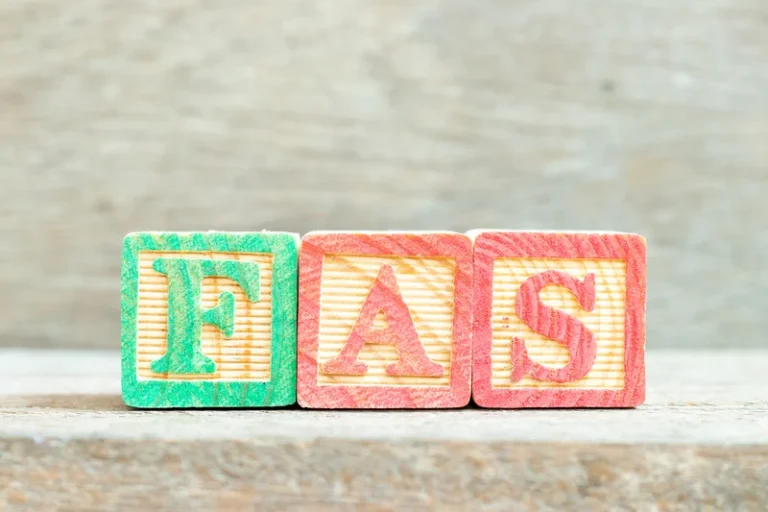
Additionally, alcohol affects neurotransmitter levels in the brain—the chemical messengers responsible for how we think, feel, and behave. Over time, these changes can make it harder for you to relax when you aren’t drinking and may lead to persistent worries, intrusive thoughts, and other anxiety symptoms. It is also important to check whether you feel able to take a break from alcohol and look out for the warning signs of a drinking problem. Self-medicating your panic attacks with drink can leave you psychologically dependent on alcohol because the short-term sedative effects can be addictive. Every time you drink, alcohol triggers an increase in the production of insulin.

Do All Types of Alcohol Cause Anxiety?
Once you’ve cut down your drinking (or stopped drinking altogether), keep going like this for a couple of weeks. Most people can expect to see an improvement in their anxiety symptoms in this time as the brain’s balance of chemicals and processes start to return to normal and you experience better quality sleep6. According to the Anxiety and Depression Association of America (ADAA), about 7 percent of Americans have this form of anxiety.
- This means that you will need to drink larger amounts of alcohol on a more frequent basis in order to experience the same effects, increasing the risk of developing a physical or psychological addiction.
- Anxiety sensitivity also has been linked to the incidence of both anxiety and substance use disorders (DeHaas et al. 2001; DeMartini and Carey 2011; Schmidt et al. 2007).
- Alcohol acts as a sedative, often lowering the feelings of anxiety or panic that you may be experiencing.
- This later stage of addiction marks a shift from impulsive use driven by positive reinforcement to compulsive use driven by negative reinforcement.
Alcohol and Anxiety: Does Alcohol Cause Anxiety and Panic Attacks?
Additionally, symptoms of anxiety will still be lurking around the corner as the underlying triggers have not been properly addressed and treated. Healthcare professionals must carefully treat individuals with mental health disorders and AUDs, recognizing the entwined nature of both conditions. Alcohol works as “liquid courage” to face the situation without feeling fearful, overwhelmed or inadequate. However, this situation may cause “hangxiety,” which is anxious or tense feelings during or after a hangover, often due to the effects of alcohol withdrawal. Whether or not you drink, your panic attacks need to be addressed separately. Cutting out alcohol will help you cope better, and should reduce the likelihood of experiencing a panic attack, but it won’t stop them altogether.
Get advice that’s rooted in medical expertise:
The third causal explanation for comorbid anxiety and AUDs asserts that anxiety largely is a consequence of heavy, prolonged alcohol consumption. Alcoholism leads to a range of biopsychosocial problems, and anxiety can result from alcohol-related disturbances in each of these domains. The course of alcohol dependence is fraught with repeated intermittent episodes of excessive and frequent consumption and withdrawal, which can result in changes in the nervous systems https://ecosoberhouse.com/ that produce and/or worsen anxiety. Across time, repeated withdrawal episodes can result in a progressive neural adaptation (i.e., a process known as kindling) that makes the drinker more susceptible to anxiety and exacerbates stress-induced negative affect when alcohol intake stops (Breese et al. 2005). It nevertheless is appropriate to recognize that anxious clients who also have comorbid AUDs may be vulnerable to negative outcomes from this treatment method.

Specifically, whereas socially phobic men benefitted equally well from either cognitive–behavioral therapy (CBT) or 12-step facilitation (TSF), women with social phobia fared less well if they were assigned to TSF. To shed light on the potential role of social anxiety in addiction treatment, Book and colleagues (2009) compared participants in an intensive outpatient program with high and low social anxiety on attitudes toward treatment activities. Members of the group with high social anxiety, who predominantly were female (71 percent), overall showed less treatment participation than did members of the comparison group. For example, they were less likely to speak up in group therapy, attend a 12-step meeting, or seek sponsorship within a 12-step group. In contrast, no differences in relapse rates were found among the men with or without social phobia in the study.
Who can prescribe medication?
Thus, previous research has suggested that parallel psychosocial treatments for anxiety and AUDs may be too demanding for clients, which can negatively influence treatment outcomes (,Randall et al. 2001). In addition, the parallel approach may convey an implicit (and erroneous) suggestion that the two disorders are separate, and the approach generally may be inefficient. Discover how alcohol and anxiety may be interlinked, including why panic attacks and anxiety symptoms may occur after drinking alcohol.

If you’re someone who is prone to panic attacks when there is no obvious external trigger, dealing with the stress of mistakes can make having one more likely. This is especially true when coupled with the physiological symptoms of drinking. Drinking is commonly used to numb anxious thoughts, and yet paradoxically alcohol can cause more panic attacks to occur. We have the experience and resources needed to match you with a detoxification programme that suits your budget and lifestyle – give our friendly team a call today and take your first step towards breaking the vicious cycle of alcohol and panic attacks. If you reach for alcohol in an effort to avoid experiencing a panic attack or feelings of anxiety, you can quickly become trapped in a debilitating cycle that becomes very difficult to break. This is a slippery slope that can easily spiral into a devastating addiction, make your panic attacks and anxiety worse in the long term.
- Your heart rate and breathing would speed up as your body prepared for a life-threatening situation.
- The term “comorbidity” has become a fairly generic reference for co-occurring alcohol and anxiety or depressive disorders.
- This has been demonstrated in a series of studies evaluating the intersection of gender, social anxiety disorder, and treatment modality.
- The respective prevalences of comorbid anxiety disorders and AUDs from each of these epidemiological studies are summarized in table 1.
- In addition to adjusting standard pharmacotherapy and psychotherapy protocols for anxiety and AUDs when treating comorbid clients, it also is crucial to apply these methods in a way that produces the best outcomes for both disorders.
- A doctor may also suggest additional treatment options, such as counseling or joining a support group.
- Please review the linked description of alcohol use disorder, and if you need help, review this link for treatments and resources.
- However, very little cross-communication has occurred among these disciplines.
- Although panic attacks themselves aren’t life-threatening, they can be frightening and significantly affect your quality of life.
Overall, these symptoms can lead to feelings of terror, causing the person to want to escape from their situation. When prescribed by a doctor, medication can also help manage symptoms effectively. In some cases, healthcare professionals would need to prescribe antidepressants or anti-anxiety medications to help manage symptoms. Following prescribed medication regimens and attending regular follow-up appointments are crucial for the effective management of anxiety.
Lifestyle and home remedies
